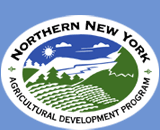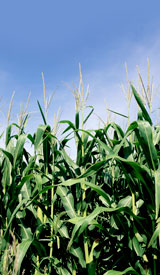February 7, 2008
Contact: Ev Thomas, 518-846-7121; Extension: Franklin County:
Carl Tillinghast, 518-483-7403; Clinton County Blake Putman,
518-561-7450
Learn Critical Strategies for Coping with High Fertilizer Costs March
17 in Chazy or March 18 in Malone
Blame it on the increasing price of oil, more crop acreage in the U.S.,
more corn in China, ethanol, or politics. The bottom line is farmers
will pay a lot more per ton for fertilizer in 2008, says Ev Thomas, Vice
President of Agricultural Programs at W.H. Miner Agricultural Research
Institute, Chazy, NY. That is why you should attend one of the Making
the Most of Your Fertilizer Dollar workshops in Northern New York in
March to learn how to cope with the rising costs of crop production.
The fertilizer-focused programs will be held March 17 at Gumas
Restaurant in Chazy and March 18 at the 911 Building in Malone. Meetings
will be held later in the week in Canton, Lowville, and Watertown.
Thomas says fertilizer prices may be twice as much as USDA predictions.
He says, �I would say $600 per ton for urea is not out of the question.
2008 would be a dandy year to develop a fertilizer plan based on soil
analysis and taking full credit for nutrients provided to soil by manure
applications.�
The March meetings will feature nutrient management research funded in
part by the Northern New York Agricultural Development Program that has
shown that farmers can reduce fertilizer applications on some corn and
hay fields without negatively impacting crop yield or quality. Dr.
Quirine M. Ketterings of Cornell University will speak on nutrient
management research at all the March meetings
Thomas says a survey of seed sellers indicates seed prices will rise by
more than the four percent USDA predicts. �Seed costs are just one more
reason why Northern New York farmers should attend the Making the Most
of Your Fertilizer Dollar workshops in March and make use of the
regional research data on nutrient management made possible by Cornell
University researchers and funding from the Northern New York
Agricultural Development Program.�
For more information on the mid-March fertilizer meetings, contact
Cornell Cooperative Extension. Information on fertilizer applications,
nutrient balancing and soil surveys is available on the Northern New
York Agricultural Development Program website at www.nnyagdev.org. # # #



